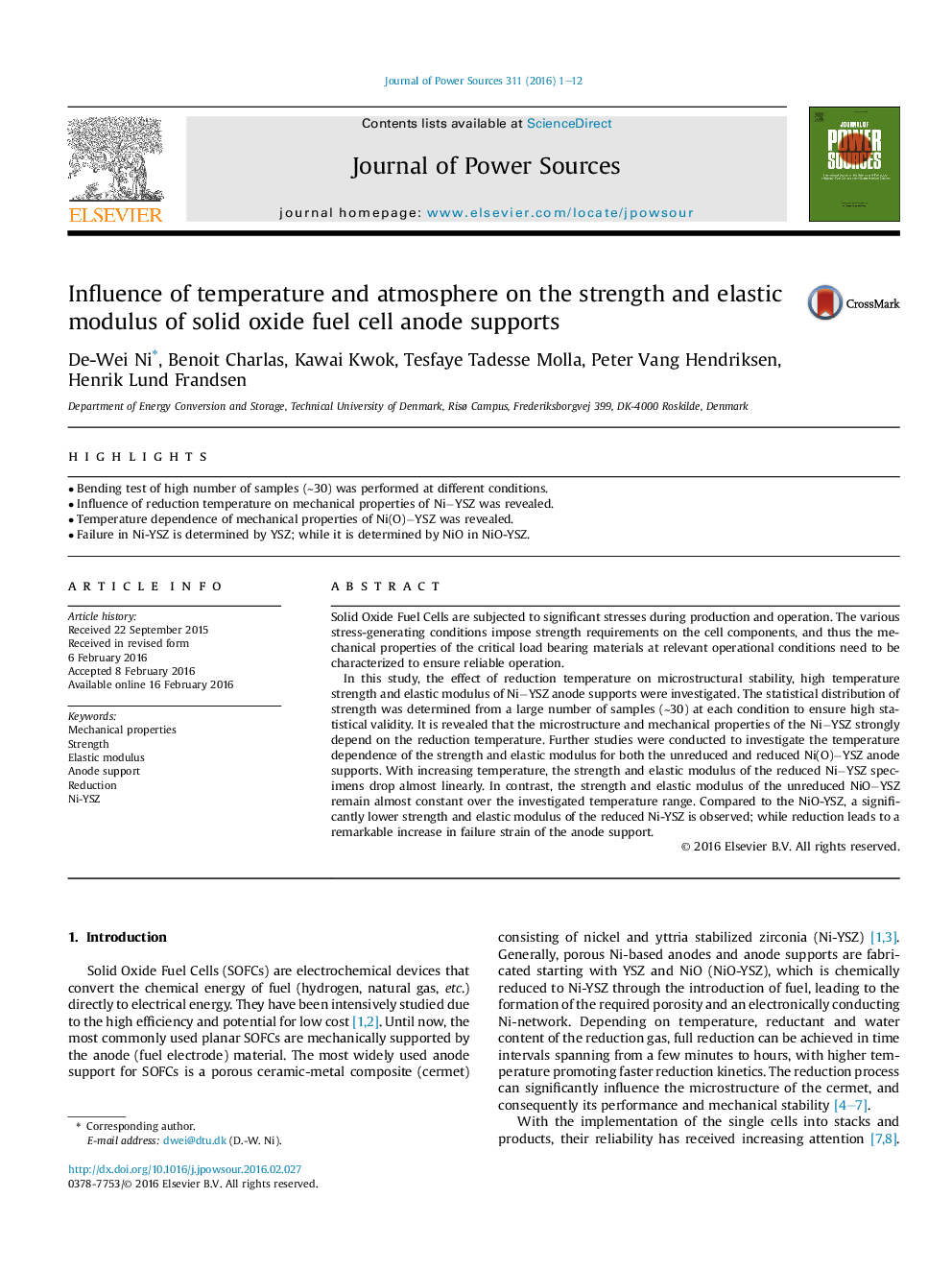| Article ID | Journal | Published Year | Pages | File Type |
|---|---|---|---|---|
| 1283697 | Journal of Power Sources | 2016 | 12 Pages |
•Bending test of high number of samples (∼30) was performed at different conditions.•Influence of reduction temperature on mechanical properties of Ni−YSZ was revealed.•Temperature dependence of mechanical properties of Ni(O)−YSZ was revealed.•Failure in Ni-YSZ is determined by YSZ; while it is determined by NiO in NiO-YSZ.
Solid Oxide Fuel Cells are subjected to significant stresses during production and operation. The various stress-generating conditions impose strength requirements on the cell components, and thus the mechanical properties of the critical load bearing materials at relevant operational conditions need to be characterized to ensure reliable operation.In this study, the effect of reduction temperature on microstructural stability, high temperature strength and elastic modulus of Ni−YSZ anode supports were investigated. The statistical distribution of strength was determined from a large number of samples (∼30) at each condition to ensure high statistical validity. It is revealed that the microstructure and mechanical properties of the Ni−YSZ strongly depend on the reduction temperature. Further studies were conducted to investigate the temperature dependence of the strength and elastic modulus for both the unreduced and reduced Ni(O)−YSZ anode supports. With increasing temperature, the strength and elastic modulus of the reduced Ni−YSZ specimens drop almost linearly. In contrast, the strength and elastic modulus of the unreduced NiO−YSZ remain almost constant over the investigated temperature range. Compared to the NiO-YSZ, a significantly lower strength and elastic modulus of the reduced Ni-YSZ is observed; while reduction leads to a remarkable increase in failure strain of the anode support.
